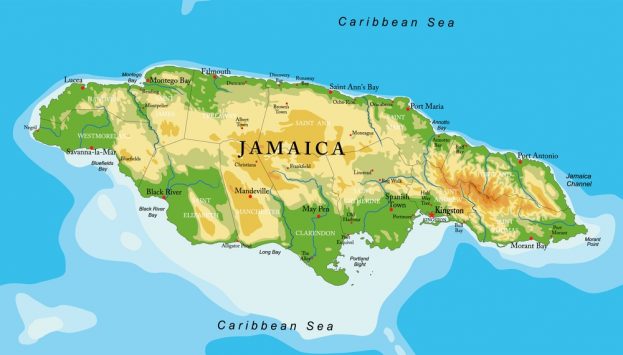
“It is agreed that both States will refrain, whether by words or deeds, from escalating any conflict or disagreement arising from any controversy between them. The two States will cooperate to avoid incidents on the ground conducive to tension between them. In the event of such an incident the two States will immediately communicate with one another, the Caribbean Community (Caricom), the Community of Latin America and the Caribbean (CELAC), and the President of Brazil to contain, reverse and prevent its recurrence.” — Section of the Argyle Agreement signed between Guyana and Venezuela on December 14, 2023
What role does Caricom play, is it merely a talking shop where grand ideas are pronounced and then left to die, or is it an arena where small nations in the Caribbean can flex their collective muscle to live in a world we find favourable?
For over 50 years this has been the question which has vexed leaders of the region as well as its citizens. Can a region which, in a very unceremonious fashion, rejected federalism or any sort of joined-up government due to petty squabbles accept unity and what it takes to achieve it or will it, in the end, be a grand waste of time?
Critics of Caricom have many items to choose from: the failure of the common market (an issue many members complain about), the failure to harmonise and act on foreign policy, the failure to live up to the freedom of movement, the list could go on. As much as I am a defender of what Caricom can do and has achieved I also acknowledge the glaring failures this institution has given us.
We who support regional integration unfortunately can only speak of theory, what may be if integration is achieved, or how leaders should act to achieve it. That is the sad reality. However, every now and then the body acts in a fashion which proves that it is not only beneficial to the region, but that further integration would actually resolve many outstanding issues.
In recent weeks, the territorial dispute between Guyana and Venezuela reached a new high. On December 3, 2023, a referendum was held in Venezuela asking if the citizens recognised the disputed Essequibo region as Venezuelan territory. The majority of voters agreed and the Government in Venezuela began making movements to see if and how that could be achieved.
Now, this dispute goes back a long time. It is one which has the hallmarks of a 1970s Italian-directed political drama. Imperialism, colonialism, the Monroe Doctrine, the US teaming up with the UK, alleged fraudulent findings at arbitrations, deathbed confessions and frothing anticommunism — aimed against Guyana’s Jagan and then Burnham — which culminates in both neighbours burying the hatchet.
This drama is the cliff notes version of the dispute, a dispute which began between the UK and Venezuela, was inherited by Guyana upon independence and was made dormant following the election of Hugo Chavez.
The dispute resurfaced only a few years ago when Guyana discovered a large deposit of oil and allowed Exxon to do the extraction following its ouster from Venezuela and it vowing to return come hell or high water.
In order to quell the growing tensions which saw Guyana invite US troops to its border and Venezuela engage in border security activities, Caricom, which has good relations with Venezuela and of which Guyana is a member, sought to intervene. In doing so Caricom, along with members of CELAC, managed to have both leaders sit down and come to an agreement to cease the escalation in hostilities and use dialogue to resolve the dispute.
It cannot be stressed how important this agreement is. It is no secret that the US and her allies are looking to re-enter Venezuela and access its oil, particularly since the West imposed sanctions on Russian oil which met the shortfall caused by not being able to access Venezuelan oil. The Bay of Piglets — the botched invasion of Venezuela — the propping up of Juan Guaido, and the drone attack against President Maduro should be all the evidence we need that the West is looking to violently regain access to the natural resources if needs be.
In nipping this issue in the bud, Caricom has stood up to the bully in the room, the one who is pitting both countries against each other (something it did in reverse when Jagan and Burnham were in office) and is insisting that this region is a zone of peace where issues will be resolved by ourselves and no one else. In organising this gathering and coming to this agreement, the body has shown that it is more than able, capable and, if motivated, willing to stick its head above the metaphorical parapet and make a stand on issues which are of global importance.
This move, though, however good it is — and it is massive — shows that the body has a lot of growing up to do. This action which excluded the big regional and global powers shows the lack of seriousness with which we have treated the Haitian issue. The entire region can agree to come together and stop what is essentially a US-backed move to hostilities understanding that the issue should be resolved by both parties. This seems to have been totally forgotten when it comes to resolving issues in Haiti.
Instead of Caricom, CELAC, etc coming together to resolve the situation — a situation which haunts all Caricom members to a greater or lesser extent — we have invited the two countries which have been and remain as the main instigators of the apocalypse in Haiti to be the main players. In fact, we are so backwards on this that we in Jamaica are willing to act as a proxy in order to violently occupy Haiti against the wishes of its citizens.
Doing well on the Essequibo dispute while taking the imperialist route when it comes to Haiti shows how much work we must do. We cannot allow what is essentially divide-and-rule tactics to destroy what could be seen with the Argyle Agreement as a very powerful and successful bloc.
And on the Argyle Agreement, while I don’t think anyone can say Venezuela is blameless, promoting revanchist history and threatening a nation many times smaller than it, Guyana is not helping the situation and the recent invitation of British warships needs to be called out. We are a zone of peace, that is the only way we can develop. Conflict in Haiti, which is what any intervention will result in, must be avoided, and British dreams of an 1800s navy post-Brexit must be nipped in the bud.
Caricom leaders must condemn the provocative actions seemingly endorsed by Guyana and must call for a peaceful and regional solution to Haiti void of any non-Caricom input. Those actions which will result in peace will go a long way to allowing the region space to develop in a peaceful manner and resolve our issues, but this can only be done if we not only talk a good talk but also take the necessary actions. Some steps have been taken, but more needs to be done.



